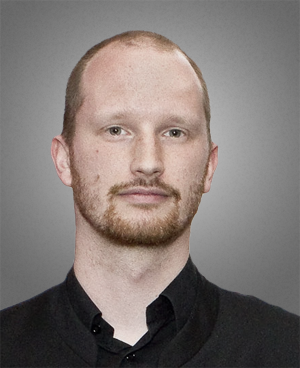Lecturer: Markus Krause
Fields: Human Computer Interaction, Artificial Intelligence (actually: Advanced Statistical Analysis and Pattern Recognition), Human Computation
Content
Modern computational systems have amazing capabilities. They can detect a face or fingerprint in millions of samples, find a search term in a sea of billions of documents, and control the flow of trillions of dollars. Some of these abilities seem almost supernatural and even frightening. Yet, our brains are still the architects of invention and might remain to be so for aeons to come. Understanding and utilising the difference between machine und human intelligence is one of the new frontiers of computer science. With the advent of the next AI winter integrating human intervention into almost autonomous systems will gain crucial importance in the near future.
In this course we aim at lifting a bit of the mystic shroud that surrounds artificial intelligence. We will uncover its abilities, unveil short comings, and even conjure a deep neural network from (almost) thin air. You do not need to be an experienced coder or mathematical genius. Basic python understanding, and 8 grade math skills are enough to follow the course and build your own “AI”. After this hopefully disillusionary exercise we take a refreshing dive into reality. We will investigate real intelligence and how our brains talent for strategic problem solving can fuse with the sheer calculation power of machines. We will explore how these socio-technical systems will shape the future and the risks and pitfalls of the Hominum-ex-Machina.
Objectives
Understanding the limitations of machine-based decision capabilities, the abilities setting humans apart from computers, and how human and machine abilities can fuse to form large scale computational systems.
Literature
Interesting AI Papers:
David Saxton: https://arxiv.org/pdf/1904.01557.pdf
Rumelhart et al: Learning internal representations by error-propagation
Krizhevsky et al: Imagenet classification with deep convolutional neural networks
Hochreiter, Schmidhuber: Long short-term memory
A Vaswan et al: Attention is all you need
HComp Papers:
https://dl.acm.org/conference/chi
https://dl.acm.org/conference/cscw
https://www.aaai.org/Library/HCOMP/hcomp-library.php
First Paper about Human Computation and the inverse Turing test: http://www.wisdom.weizmann.ac.il/~naor/PAPERS/human.pdf
Book by Luis von Ahn and Edith Law basics about the inverted touring test at work: https://www.google.com/books/edition/Human_Computation/bF7ePcj-cUMC?hl=en&gbpv=1&printsec=frontcover
A set of interesting papers to take crowdsourcing to a higher complexity level:
https://hci.stanford.edu/publications/2017/flashorgs/flash-orgs-chi-2017.pdf
https://hci.stanford.edu/publications/2017/crowdresearch/crowd-research-uist2017.pdf
https://www.mooqita.org/publications/empoweringhiddentalents.pdf
Brian Christian’s account of participating in the Turing test yearly competition https://www.amazon.com/Most-Human-Artificial-Intelligence-Teaches/dp/0307476707
Lecturer

Dr. Markus Krause is a computer scientist, professional game designer, and serial entrepreneur. He co-founded Mooqita a Berkeley based Non-Profit supporting students in finding the job they love. Mooqita uses a novel approach combining human and machine intelligence. Dr. Krause also co-founded Brainworks.ai. Brainworks develops a new neural cortex to use smartphones as diagnostic tools for online health care applications. He is also the primary investigator for the Mooqita project at the International Computer Science Institute at UC Berkeley and part of the advisory committee to the DAAD IFI. Dr. Krause earned is doctoral degree in computer science from the University of Bremen, Germany and the Carnegie Mellon University in Pittsburgh, USA.
Websites: https://www.mooqita.org/
http://brainworks.ai/
https://www.linkedin.com/in/markus-krause-3490b246/